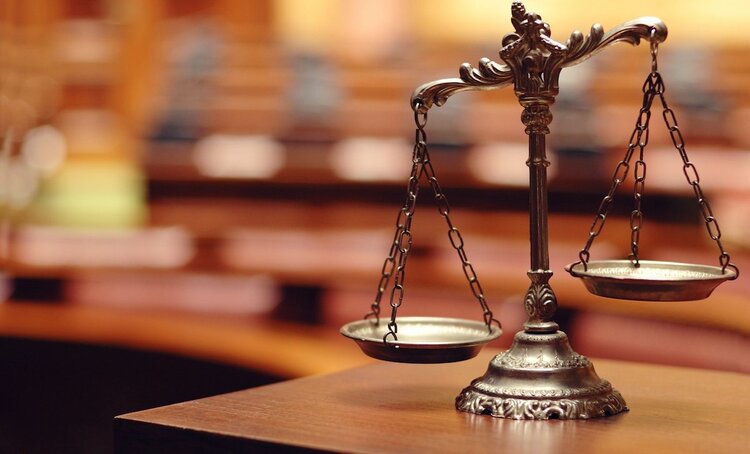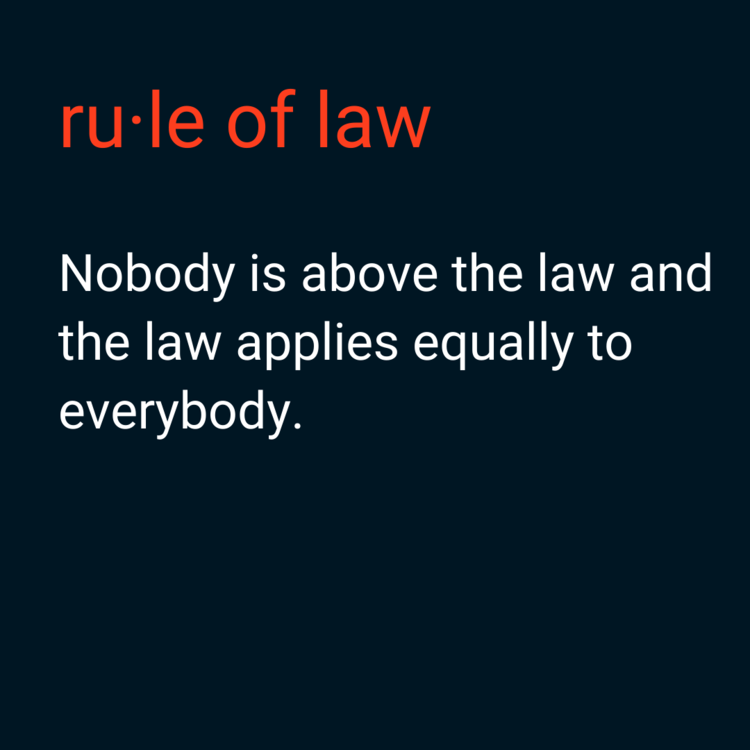It was John Adams who wrote that a republic is “a government of laws, and not of men.” His words pointed toward a fundamental proposition that was at the core of our new nation: that no one was above the law and everyone under it must be treated the same. Indeed, our founders had just emerged from the tyrannical rule of King George III, and sought to establish a nation governed by the Rule of Law, rather than the arbitrary and corrupt rule of a powerful few.
Ironically, while the oppressive rule of the English was what sparked our Revolution, the Rule of Law entered western consciousnesses in England. In 1215, rebel barons challenged the absolute authority of King John, forcing him to sign the Magna Carta, which in Latin means the Great Charter. Five centuries later, our founders more fully realized the promise of the Rule of Law in America by creating a government of laws that John Adams had described.
Since those momentous days, our democracy based on the Rule of Law has faced numerous threats, such as the Civil War, Jim Crow, and Watergate. Meanwhile, the powerful and well-connected have often contrived ways to beat the system, sometimes succeeding. But throughout American history, this principle has usually been a consistent protection for everyday citizens who wish to go about their lives freely, secure in the knowledge that our justice system will treat them fairly, whether they’re Bill Gates or a newly-arrived immigrant.
The Rule of Law is fundamentally important to our system of government and a principle that is seamlessly ingrained into our society as a whole. It might therefore be hard to imagine an America where you are not afforded its protections in your daily life. But try.
Imagine you are a coal miner working at a relatively small mining company of a few hundred employees in a small West Virginian town. Your family has worked at the same mine for decades, and you joined your father in that mine after high school. Your work is hard, but you like your job. And you feel purpose in what you do. You also feel a real attachment to your town. Generations of your family have lived there. Everyone knows each other. It is a tough place. But it’s a tight-knit community, and it is your home.
Unfortunately, in recent months, your mining company has been under increasing financial strain. The new CEO of the company, a young wealthy entrepreneur, tells you and your co-workers that this is simply a result of the times; the natural gas industry and government regulation are making it harder for the coal industry to succeed. You continue going to work everyday and hope for the best, but one day, the CEO congregates the workers after a day’s shift, and emotionally announces that the company is going bankrupt and that he has made the difficult decision to shutter it.
You, along with your father, have few transferable skills outside of mining, and so your job prospects are not good. But more than that, your town suffers as a result of the mine shutting down. Local bars and restaurants quickly go out of business. Many young people leave to seek employment elsewhere. You begin to fear for the future of your home.
And one day, the local newspaper, which also is considering closing, prints that your former boss, the CEO, had been under investigation by the state prosecutor’s office for some time, and that he was recently indicted. Apparently, he had embezzled money from your coal company in order to cover his personal debts from his out-of-state businesses. That’s why the coal mine went bankrupt.
At first, you are livid. This corrupt CEO cost you your job. But the news also brings you some measure of satisfaction. At least, there will be justice. Perhaps, the CEO will be forced to pay remuneration to his former employees. And maybe this means the coal industry isn’t dead in your town after all.

Time goes on. You and your town attempt to recover, slowly adapting to the difficult change in circumstances. And the CEO is convicted of embezzlement in what was obviously an open-and-shut case. But just a few weeks later, a new Governor takes office, and in one of his first acts on the job, he instructs the state prosecutors office to drop the case. You’re absolutely blown away. How is this fair? He had been convicted by a jury of his peers and was awaiting being sentenced.
You soon discover that the CEO is one of the Governor’s close friends. They have known each other for years, and the Governor, who has allies among some West Virginia daily papers, seizes on stories planted by the CEO to claim that his friend had been set up by a coalition of environmentalists. He then instructs his prosecutors to drop the case. You’re at a loss. You and your family have just lost everything, while your former boss, the person whose criminality set all of this in motion, has managed to get off scot-free.
Fortunately, this is not our reality. But unfortunately, it is a bit too close for comfort. Indeed, in the Michael Flynn case, the Attorney General of the United States has pushed to dismiss charges against a political ally of the President. Despite Flynn having already pleaded guilty twice to the crime of lying to the FBI, the Justice Department has ignored this admission of guilt, instead contorting the facts in an effort to exonerate him. This is not too different from our earlier example.
Although many people might dismiss the Michael Flynn saga as the kind of political drama that has too often characterized Washington, D.C., it actually portends quite a scary future for our country: one in which the Justice Department pursues political vendettas rather than justice. One in which this kind of political favoritism and corruption trickles down to state and local prosecutor offices throughout the country. One where those in power and those with power avoid punishment by virtue of their connections, and where those without power suffer the consequences.
All too often, we ignore violations of the Rule of Law at the national level. We’d like to believe that while what happens in Washington, D.C. might seem unfair, it does not affect our everyday lives. Yet, as the story of the coal miner shows, if a precedent is set that certain people are above the law, many of our jobs and livelihoods might be threatened. We must work hard to ensure that the sanctity of the Rule of Law is maintained in our country. If this important principle continues to be undermined, it is only a matter of time before it disappears from a courthouse near you.




